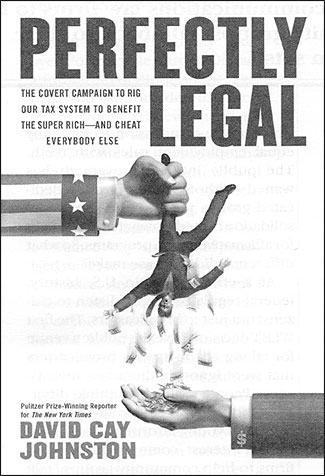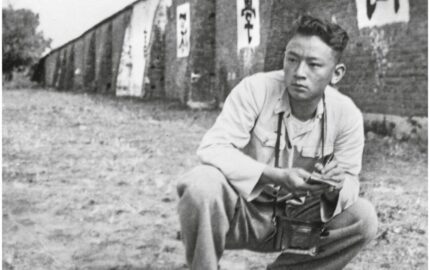Nearly a decade ago I set out to show that there was a better way to report on tax. The idea had two parts. The first was to largely ignore what politicians said about the tax system on the theory that this was already well covered. The second was to focus on how the tax system actually works after the laws are enacted, to get at how all of the promises of reform and relief and cuts and targeted favors translate into actual policy.
The intent was to examine not what politicians say, but what they have done.
It is an idea that I wish would dominate journalism. I know that is what readers want. In survey after survey, the letters to the editors of the better newspapers and cocktail party chatter all show the same thing. People want news with substance and clarity, they want the hard work of making sense of issues done for them, and they want facts that are rounded and even-handed so they can apply their own lens of perception and draw their own conclusions. Of course readers, viewers and listeners soak up O.J.-Monica-Chandra-Scott Peterson-Michael Jackson, but they want that as dessert, not the main course.
And people are really tired of news they can’t use, which explains much of the slide in circulation and viewership. My favorite example of losing sight of basics is a Philadelphia Inquirer story a few years back on the budget of suburban Montgomery County, the most critical market for the Inquirer’s future. The story was short. It reported on the three county commissioners speaking ill of one another. It had not a single word on whether property taxes would rise or fall, the budget for road repairs would change, or any of the other issues that actually mattered to me as a homeowner, resident and parent.
A Different Kind of Coverage
The idea of breaking away from “he said” journalism, of focusing on what Washington does, first came to me when I was at the Los Angeles Times. It was 1980, on the night Ronald Reagan was elected President. Clearly he intended to change Washington. He promised fewer taxes, less regulation, and less spending as well as vowing that Cold War détente would give way to a drive to crush godless Communism.
The idea began when the music stopped at Simply Blues, a Hollywood restaurant, and someone tuned on a television set just as Reagan delivered his victory speech. My date joined a booing crowd in throwing ice cubes at the television. My mind drifted to thoughts of a new era and how best to craft the first rough draft of the history that would unfold over the next four or eight years.
Soon I approached the national editor with an idea. I asked to be made the paper’s second White House correspondent, but subject to one crucial rule: I could not go to the White House. Ever.
Instead of writing about what the President said, I proposed mining executive orders, presidential letters, and anything else to focus entirely on what the President was actually doing. I laid out rich veins of action to be mined for stories. The editor said it was a superb idea and would surely generate lots of news—and that was the problem. He imagined friction with the Washington bureau and the regular White House correspondent, and he said it just would not be worth it. Readers were discounted in his equation.
A decade and a half later I had shown a new way to cover police as bureaucrats with guns, to cover nonprofits as hard news and (at The Philadelphia Inquirer) breaking new ground in covering the burgeoning casino industry. Yet I still hungered to cover Washington without going there, to cover what government does instead of what politicians say.
Fortunately the legendary Gene Roberts, who had brought me to Philadelphia, had come out of retirement to rejoin The New York Times. Roberts shared my view that taxes were badly covered, that there was too much of what politicians promised and not enough on what they had delivered. He brought me into the Times.
At first my immediate editors thought I should work from Washington. I protested.
Washington beguiles, and perhaps forces, reporters to cover sayings instead of doings. Doubters should look at the career of Jim Warren, a great and insightful reporter who came to Washington as the Chicago Tribune bureau chief vowing to be apart from the system. Today he is so thoroughly a Washington journalist that he has become one of its televised stars.
In New York, I sent myself to tax school at my desk. Soon various Times’s editors, and a few reporters, asked what I was doing. They would see me at my desk, piled high with thick books of statistical tables or standing at the printer as pages and pages of court decisions came out. Now and then they spotted me doing algebra. Some of them told me they thought I must be nuts.
It did not help that my first few stories had all the clarity of mud. But I broke a few good stories here and there and after a few years began to get notice outside the paper for the substance of my reports.
There is nothing magic about what I do. There are others who do the same sort of work. There should be many others. Many others.
Taking Reporting Seriously
The journalistic problems that drove me to try and find a better way to report on taxes are not confined to this subject. They are a growing cancer on serious journalism.
Ask the person next to you on the airplane or at the school play or in the supermarket checkout line about the news, and you will get back all sorts of responses. Many people will quickly turn to how much of what is in newspapers, magazines and on television and radio is fluff or is controversy devoid of substance.
Senator Christopher Dodd of Connecticut complained to me recently about the degradation in the quality of news since he first came to Washington in 1975. He said he actually longed for many of the reporters who he said used to grill him about issues because they asked questions about matters of substance.
“Now it’s ‘give me a quote,’” he said, thrusting his wine glass at me like it was a microphone. “You’ve got all these reporters who don’t know anything …,” he complained before waxing nostalgically about reporters who understood Pentagon procurement and other issues that informed their work.
I knew exactly what he meant. Earlier that day a young woman stopped me on the street, announced that she was a reporter for Sinclair Broadcasting, and thrust a microphone in my face. Suddenly a camera appeared. Without so much as asking my name, she declared that female circumcision is illegal in the United States and asked what I thought about “a growing movement” to ban male circumcision.
Ignoring whether her premise was factual, I looked squarely into the camera and said: “In a world overflowing with important issues you think this is news? Shame on you.”
Earlier this year a reporter for another newspaper’s Washington bureau sought me out to express admiration for my work. I told him that he can do the same thing, just read the government’s data and decide for yourself what is significant and then go report out the story.
“Oh no,” he said, “legislators would refuse to talk if they really disliked what they read.”
“So what?” I said.
Lots of people do not return my calls. I try to dig out of the record what they have said, but in the end they might just get a mention that they declined comment.
The reporter replied that without quotes his editors would not be satisfied. Being cut off by politicians or their flacks could mean reassignment back home.
It was not the first time I had heard such nonsense. I wish it would have been the last.
This idea that reporters depend on politicians or anyone for quotes is a cancer of fearful journalism tinged with favor for those who want to escape accountability. Nobody is required to give us quotes or answer questions. Nobody has to return our telephone calls.
But the funny thing about politicians is that they love to talk. And their offices spew out all sorts of statements that can be mined for comments. And saying a politician declined comment means more space to explicate on the issues.
Here’s an idea for a newspaper editor who lacks the budget to open foreign bureaus, but knows readers want international news. Assign a savvy reporter to cover foreign affairs from his or her desk. Tell the reporter not to worry about the official version of events from Washington because other reporters and the state department press office will take care of that. Just build a list of names and contacts at the embassies of other governments, and at their foreign ministries, and report on what they are saying about our government’s actions.
In time readers will get a different, and informing, take on world events.
David Cay Johnston is a reporter for The New York Times. His recent book, “Perfectly Legal: The Covert Campaign to Rig Our Tax System to Benefit the Super Rich—and Cheat Everybody Else,” was awarded a medal by Investigative Reporters and Editors as book of the year. In 2001, he won the Pulitzer Prize for his beat reporting “that exposed loopholes and inequities in the U.S. tax code.”




